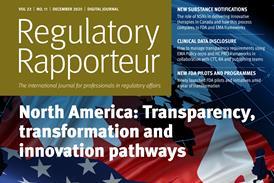Botanicals and digestive enzymes demonstrate the complexity and diversity of food supplement regulations in the European Union

A lack of harmonisation in the regulations governing digestive enzymes and botanical ingredients used in food supplements presents challenges in the marketing of these ingredients in the European Union. The EU Food Supplements Directive (Directive 2002/46/EC) introduced a regulatory framework for food supplements which is unique in the region. While botanicals and digestive enzymes are covered by the Directive in a broad sense, their use remains subject to a complex set of EU and member state (MS) regulations. This article details the rules applicable to botanical and digestive enzyme ingredients according to the EU Novel Food Regulation (Regulation (EU) 2015/2283) and national lists regulating “other substances” used in food supplements, and illustrates how these rules create barriers and uncertainty for food business operators.
Efforts to harmonise the field of botanicals have stalled and instead, the BelFrIt list, an initiative from Belgium, France and Italy, is used to assess permissibility of plant substances in food supplements. Even so, inclusion of a plant in the BelFrIt list does not guarantee market entry into all MS, nor does it provide total clarity on novel food status or the designated safety assessment of botanical extracts. Digestive enzymes have received little attention from regulators to date and therefore the process for checking their permissibility in application of the EU Novel Foods Regulation, which has a very broad scope, remains uncertain. To address this uncertainty, the European Commission (EC) could provide for a more specific regulatory framework, including a specified safety standard for “other substances”. However, harmonisation at EU level may also result in uncertainty, albeit temporarily, and create strenuous requirements for food business operators when a safety assessment via the European Food Safety Authority (EFSA) is mandated. This was demonstrated in the harmonisation effort for food enzymes used for technological purposes, which has been ongoing for more than a decade.
How to read this journal article
Thank you for visiting Regulatory Rapporteur. Journal articles are restricted to TOPRA members and registered users.
If you are a TOPRA member, or have already registered for limited free access, log in now (Option 1 below).
Not yet a member? You can either join TOPRA (Option 2 below) or register to view limited content for free (Option 3 below).



















